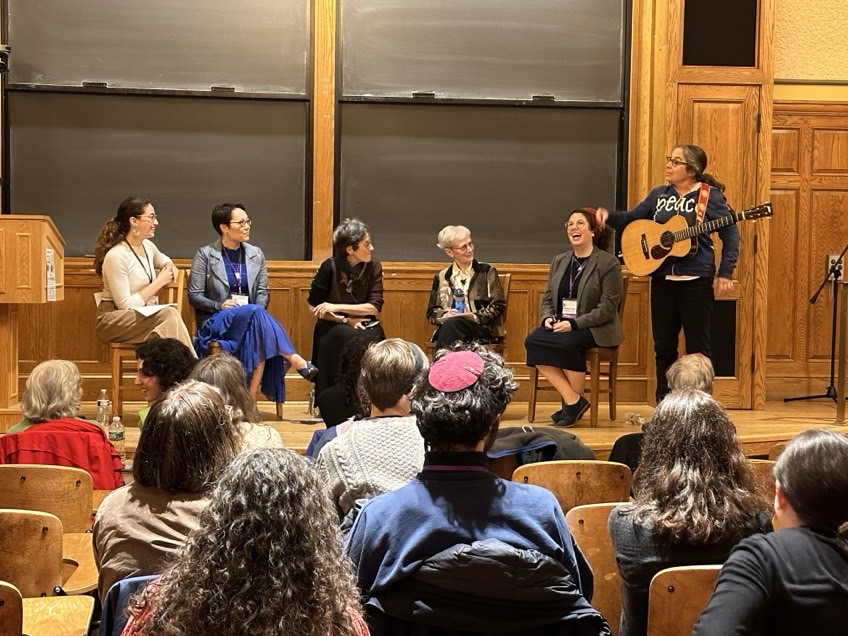Slifka Center Hosts Jewish Women’s Conference for the first time in 25 years
Alumni, students and community members convened this past weekend for the Jewish Women’s Conference held at the Slifka Center.

Courtesy of Rachel Leiken
This past weekend, the Joseph Slifka Center for Jewish Life at Yale hosted the first Jewish Women’s conference in over twenty years — the last Jewish Women’s Conference since those in 1997 and 1999.
The 2024 conference was titled “Tradition and Change: Exploring, Confronting and
Celebrating Gender in Judaism” and was organized by Rachel Leiken, associate Jewish chaplain at the Slifka Center, along with a steering committee of undergraduate students.
The conference began with a panel in Linsly-Chittenden Hall featuring Rabbi Angela Buchdahl ’94, senior rabbi of New York’s Central Synagogue; leading Jewish feminist theologian Judith Plaskow GRD ’75; Rabbanit Leah Sarna ’13, one of the first women spiritual leaders of an Orthodox community in the U.S.; and Rabbi Sharon Cohen Anisfeld, president of Hebrew College and former rabbi at the Slifka Center.
Other speakers included scholars, activists and spiritual figures ranging in age from 24 to 84, including Judith Rosenbaum ’95, CEO of the Jewish Women’s Archive; Dean of the Faculty of Arts and Sciences Tamar Gendler ’95; and comedian Ophira Eisenberg.
“The world of feminism is constantly changing and has been since the first wave of it,” Orah Massihesraelian ’25, one of the interns for the conference, said. “I think that talking about feminism is really important and it’s extremely important to not only consider feminism alone and Judaism alone but to consider how those two work hand in hand. A conference like this is exactly the time to think those things through.”
Since Leiken reached out to her over the summer, Massihesraelian has been working on the conference along with a steering committee of undergraduate Jewish women who have been meeting weekly since the beginning of the school year to plan the conference.
Hannah Szabó ’25, another intern for the conference, wrote that the organization of the conference has involved inviting speakers, booking accommodations and designing Shabbat programming.
With support from The Jewish Federation of Greater New Haven, the Friedlaender-Krohner Endowment Fund and the Henry Kohn Lectureship Fund at Slifka Center, the conference came to life this past weekend with participants attending a myriad of events in person and over Zoom.
Events ranged from a challah bake, a poetry workshop, discussions surrounding queer Jewish practice, a comedy show, women’s prayer spaces and Torah learning with prominent Jewish scholars.
“The goal was to bring together women and people of all genders to learn, to be in conversation, to do amazing singing and davening and talk about issues that are important to them in what it means to be a Jewish woman,” Leiken said.
Some alumni who had attended the last women’s conference at Yale in 1999 came back for this year’s conference.
Szabó emphasized that, since the last conference, new questions have emerged about the inclusion of expansive gender identities.
“At the same time, many of the oldest questions of the Jewish tradition remain unresolved: the role of ritual in creating and examining gender, the balance between personal identity and communal belonging, and the ways that tradition can both empower and impede identity-building,” Szabó wrote. “This conference serves as a crucial bridge between these timeless questions and their modern counterparts; between speakers who have dedicated their professional and personal lives to exploring and challenging the interrelations of gender, religion and identity and guests who will take on these questions in their own lives.”
The theme of the Jewish women’s conference in 1999 was “Cherut: Jewish Women and Freedom.”







